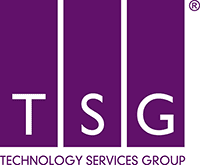Food and Beverage Industry: Keep Calm and Carry On?
The idea of food security is not a new one, but in developed economies it’s one that rarely breaks into our consciousness; but last year’s empty shelves, panic buying and the reality of rationing took the credo of “Keep Calm and Carry On” out of the retro poster to stark strapline for modern life.
Rarely have we so much appreciated the efforts of all those in the food supply chain, in fact, we actually applauded on the streets. And of course, it isn’t just the bombshell of Covid-19, but Brexit and the unmanageable weather that continue to threaten the magic of goods appearing in isle 1 to 26. To some degree, these are increasingly known risks with growing mitigation; less well appreciated perhaps is the potential impact of cyberattack on the continuity of food production and distribution.
Experts warn the UK food supply chain is vulnerable to cyberattacks
Leading food experts have warned that Britain’s food supply is highly vulnerable to cyber security incidents.
Tim Lang, professor of food policy at City at University of London said, “If anyone wanted to really damage the British food system, they could just take out the satellites. Our ‘just-in-time’ system is entirely dependent on computerised logistics. When you pay for your food at the checkout, the computer isn’t just adding up the bill, it’s reordering the stock.”
Recent surge in security breaches on major players in the industry
In recent months we have seen how a number of major players have been hit hard with virus, ransomware and other forms of malware causing interruption to supply and inflicting real commercial, operational and reputational harm. Recently, JBS, the world’s largest meat processing company was hit with a ransomware attack that saw them pay $11 million (£7.8m) to the cybercriminals responsible in order to stop the attack and protect their customers. This in turn, created a domino effect of their customers having to halt processes whilst waiting for their supplier to resolve the incident.
Of course, one hopes and assumes that the business continuity plan kicks in, the IT department goes into overdrive and grab bags were at hand; my experience is that sadly this isn’t always the case.
In the industry, as in our home lives, most things ultimately rely on the successful operation of an IT platform and whilst it’s tempting to think these attacks only concern enterprise-level companies, the reality is the “bots” and “bad actors” are indiscriminate and simply targeting weaknesses.
So, whilst this is a policy area requiring multi-national co-operation and industry-wide preparation, it is also an issue that requires thought, planning and resilience at company level.
If we are to take the lessons of the last 15 months and apply them in an effective way then certainly, we should stay calm but instead of carrying on, perhaps it’s time to review our collective IT plans.
How TSG can support your business with cyber security
For more information on how TSG can support your organisation from cyberattacks, please get in touch today.

